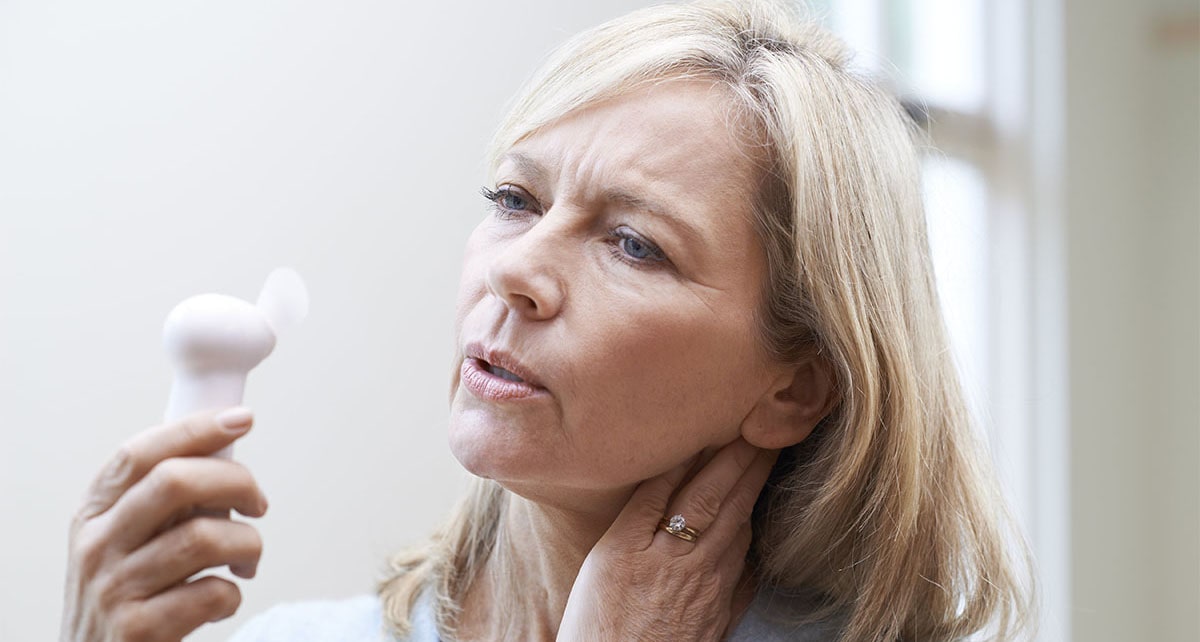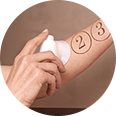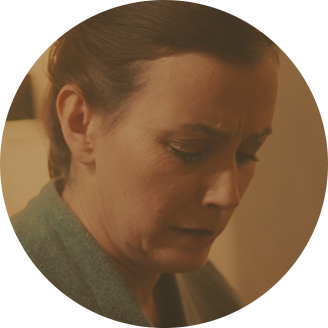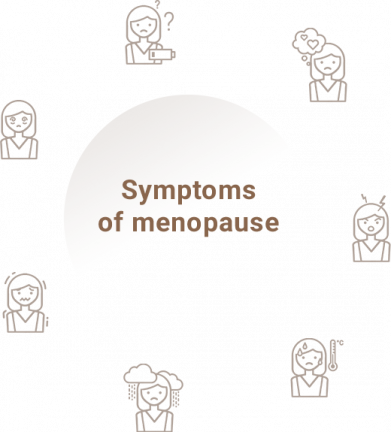Menopause in general
In our daily lives, we tend to overestimate the significance of menopause. This event, also called climacteric, is a natural process when a woman’s menstrual cycle stops. This means the ovaries stop producing egg cells.

This event starts gradually, usually around the age of 45, but most likely the symptoms occur around the age of 50-51. Isolated hot flashes, occasional feelings of sadness, vaginal dryness and menstrual changes, such as irregular bleeding or the absence of it can all be symptoms of menopause. The cause of these are hormonal changes, but we only declare menopause when there is no menstruation during a continuous period of at least twelve months.
Simply put, menopause is the end of the fertile period in a woman’s life. Is it a disease? No. Is it abnormal? Absolutely not. Is it the time when life stops? Not in the slightest.
Usually between 45 and 55 years, although the exact time cannot be predicted and can vary greatly from person to person, every woman comes into an age in which the supply of egg cells diminishes. There comes an eventful period, during which the hormone levels start changing and the female cycle no longer runs reliably and evenly. These hormonal changes have serious effects on the entire body.
What causes menopause?
At the age of 40, the ovaries begin to age. This means that they no longer release an egg cell every month for possible fertilization and the chance of getting pregnant starts to decrease. The fertile phase is considered to be finished only after no spontaneous menstruation occurs for at least one year: as long as eggs are available in the ovary, the possibility of getting pregnant is still there, stopping the use of contraceptives is not advised even at irregular cycle.
What happens in my body?
“That’s the hormones!” – How often does a woman hear this sentence in her life? During puberty, during menstruation, during pregnancy and last but not least during menopause. What are the female hormones actually doing? What influence do they have in the body and what role do they play in which phase of life?
The hormones that determine the cycle, fertility and menopause are the so-called sex hormones. There are three types of them: female estrogens and progestins and male androgens. Women also produce androgens in certain quantities, and so do men estrogens.
The female cycle
The female cycle is controlled by sex hormones for the purpose of creating ideal conditions for pregnancy, starting from the first menstruation until menopause. Several organs are involved in this process, especially the ovaries that produce sex hormones, and the brain that regulates them. In the first half of every cycle, the ova in the follicles mature, and the ovaries release oestrogens which build up the lining of the uterus, so everything is prepared for ovulation and implantation of the fertilized egg.
In about 2 weeks, the egg matures and ovulation is triggered by messenger substances in the brain. The ovum migrates to the uterus for about six days, and progesterone is released in higher amounts. After this, the egg can either be fertilized or it dies: the corpus luteum regresses and produces less hormone, which repels the lining of the womb. It comes to monthly menstrual bleeding and the next cycle begins.
The end of all cycles
Ovaries start to age at about the age of 40. Eventually, every woman comes to an age (usually between 45-55) when the supply of egg cells comes to an end, hormone levels change, the cycle is no longer running reliably and evenly. Menopause itself is declared in hindsight, a year after the last menstrual period.

Menopause symptoms
Click to read articles about

Is hormone therapy right for me?
Click to read articles about

Manage & living with menopause
Click to read articles about


